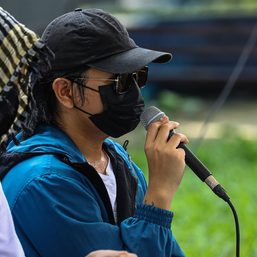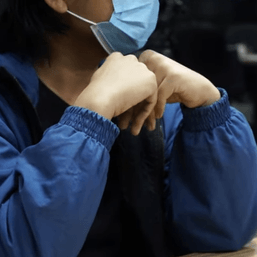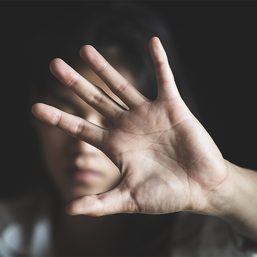SUMMARY
This is AI generated summarization, which may have errors. For context, always refer to the full article.
![[ANALYSIS] The lived realities and struggle for gender justice of women kasambahay](https://www.rappler.com/tachyon/2022/09/tl-kasambahay.jpg)
As a researcher working on women and development studies, I have always been interested in women working in the informal economy. Through my work, I come across multiple challenges and violence faced by these women, which include vendors in Quiapo, Manila, and Filipino kasambahays (domestic helpers) working in the Philippines.
One of them is Jen (not her real name), a 34-year-old woman who started working as a kasambahay when she was just 16 years old. Jen experienced various forms of sexual harassment from her employer, who repeatedly violated her consent by touching her inappropriately and watching her shower. He went even further by raping and molesting Jen’s fellow kasambahay, who was only 12 years old at the time. Fortunately, Jen and her fellow kasambahay were able to flee from their abuser. Despite the immense physical and emotional trauma they endured, both Jen and her co-worker were too terrified of their former boss to press charges. It did not help that they were unfamiliar with the laws and policies that should protect them from abuse of power.
Despite the passage of laws that are supposed to protect the rights of women and girls from abuses, such as Republic Act No. 10361 or the Domestic Workers Act, RA 8353 or the Anti Rape Law, and the RA 11313 or Safe Spaces Act, kasambahays remain vulnerable to sexual exploitation and maltreatment. They also have difficulty accessing protective measures and interventions due to their unfamiliarity with laws and policies. This is why the state needs to strengthen the implementation of these laws and programs, making sure they reach the community level.
We live in a patriarchal society where women are often seen as the inferior sex. Oppression, discrimination, and various forms of gender-based violence are a manifestation of the male-dominated power structure — and women are among the most vulnerable to these forms of abuse.
It is not surprising that women kasambahays, doubly burdened by people’s stereotyped expectations of their sex, class, and occupation, have difficulty accessing services relating to their sexual and reproductive health and rights. They also struggle to seek justice for violence and trauma inflicted upon them and attain adequate financial capital that equates to their workload. The double burden felt by the women kasambahays also refers to their productive or paid work and domestic or unpaid care work. However, the line between these two tends to get blurry since their productive work primarily consists of care work for another household.
The domination of women in the field of care work can be attributed to the sexual division of labor and gender-based social norms and practices. Thus, it is not surprising that domestic workers are often women and girls who migrated from their provinces to find occupation or work as a kasambahay in Metro Manila. A survey in 2019 by the National Wages and Productivity Commission showed that close to 50,000 Filipinos aged 18 and below are working as domestic helpers.
Kasambahays work in a private sphere environment within the four walls of a household. This work environment adds to the danger, and vulnerabilities kasambahays face as these four walls may shield them from the protection and services the state and duty bearers offer. Unveiling the necessity of promoting gender justice and sexual and reproductive health and rights among kasambahays can be attributed to a glimpse of the invisible, as many of the kasambahays are unregistered, which contributes to their vulnerability to abuse and violence.
The vulnerability of women kasambahays to abuse and violence may also be seen in the story of Irish, a mother of three and a domestic helper in Metro Manila. While working as a kasambahay, she experienced sexual abuse and trauma from her then-live-in partner and got pregnant unwillingly. Due to the financial difficulties of caring for her three children, Irish decided to get an abortion to terminate her pregnancy. Due to the criminalization of abortion, Irish secretly hired an individual who claimed to be an expert in performing abortions. Irish experienced multiple post-abortion complications. Because she was scared of the state’s punishment for availing of abortion-related services, Irish hesitated to seek help, worsening her condition. Irish was able to report the side effects to a trusted individual who then assisted her in seeking medical treatment from an obstetrician-gynecologist. But Irish also experienced judgment from her medical practitioner upon learning that she had an abortion.
These are all lived realities of women kasambahay in the Philippines. Irish and Jen did not know they had the right to protection. This shows that there is a failure in implementing the laws and policies that could have protected their sexual and reproductive health and rights.
There is also a huge need to increase awareness and access to information and services related to Sexual and Reproductive Health and Rights. With support from Global Affairs Canada, Oxfam Pilipinas and its partner organizations are implementing the Sexual Health and Empowerment (SHE) Project to empower and improve access to SRHR information and services for 85,000 women and adolescent girls and boys across 13 disadvantaged and conflict-affected provinces in the Philippines.
Jen and her co-worker should have received justice for their employer’s gender-based abuse and harassment through the Anti-Sexual Harassment Act of 1995 and the Anti-Rape Law. The state should have been responsible for managing Irish’s pregnancy-related complications and providing humane and compassionate post-abortive care through the Responsible Parenthood and Reproductive Health Law and the Magna Carta of Women.
This World Sexual Health Day, the stories of Jen and Irish are powerful reminders of the need to amplify the call for better protection and care. We already have laws and policies to prevent sexual abuse and violence against women and girls and improve their access to sexual and reproductive health information and services. All we have to do is strengthen and genuinely implement these laws and ensure that they reach our society’s most vulnerable sectors. – Rappler.com
Patricia Lloren Tuano is the Project Officer of the Sexual Health and Empowerment (SHE) Project of Oxfam Pilipinas.
Add a comment
How does this make you feel?

![[OPINYON] Oras nang ibigay sa mga kasambahay sa Asya at Pasipiko ang mga karapatang para sa kanila](https://www.rappler.com/tachyon/2022/06/domestic-workers-across-Asia-and-the-Pacific-rights.jpg?fit=449%2C449)





There are no comments yet. Add your comment to start the conversation.